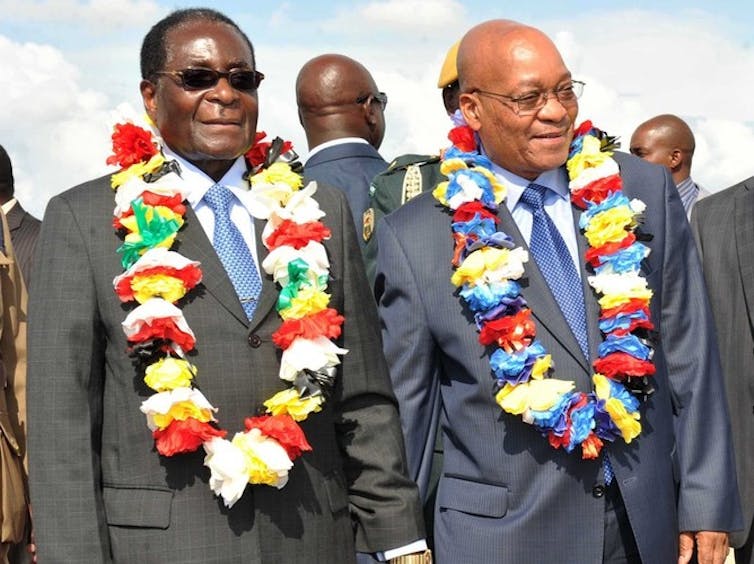
At the end of 2012, I published a deliberately surreal novel entitled Joseph Kony and the Titans of Zagreb. In it, using satire and magic realism, I tied together the corrupt destinies of figures on both the African and European continents. Its central theme is that people seem determined not only to repeat their own past mistakes, but to emulate the mistakes of others in lands far away.
So it went in March 2014, which was a curious month. The former Croatian prime minister, Ivo Sanader, was convicted of corruption; he remains in jail, where he has been since first charged. His case seemed extraordinary in today’s electronic age, with monies transacted in brown paper envelopes as if in a sepia-tinted film from many years ago.
In the same month, South Africa’s president, Jacob Zuma, recently booed and hissed by the stadium crowd at Nelson Mandela’s memorial service, was told by his country’s ombudsman to repay public monies misspent on lavish extensions to his already lavish mansion at Nkandla. This was a curious re-run of the 2005 saga that resulted in the imprisonment of Zuma’s financial adviser Schabir Shaik, when Zuma was tarred with corruption charges over funds used to finance his housing and village estate. Zuma’s apparent determination to live like a Zulu plutocrat seems to have doomed him to repeat his past mistakes.
But the most curious aspect of March 2014 was Zimbabwe’s Robert Mugabe declaring a salary cap of US$72,000 per annum on the country’s parastatal oligarchs, who had been paying themselves several million dollars a year at public expense. With the lifting of European sanctions on the highest level of his political circles (if not Mugabe himself), it seems that Mugabe has decided to “clean up” at least some aspects of his governance. No longer threatened by a meaningful domestic opposition, and with international pressure softening, Zimbabwe may be reaching the tipping point – not yet at hand in Croatia or South Africa – where corrupt oligarchs begin to launder themselves into respectable businessmen, philanthropists and pillars of society.
The slow, generations-long process by which robbers and rail-barons, mining kings and mobsters become the great and the good of society is a fascinating one, reminiscent of what happened in the USA. It is what happens when economic opportunities become diverse and promising enough that corruption through state office is no longer especially necessary or appealing. The great and the powerful of Zimbabwe have now stolen enough state funds, diamonds – and everything else that was once offered as an inducement to support Mugabe – and can now turn their ill-gotten gains into business investments and their front businesses into actual businesses.
In a sense, it may be that South Africans have not yet stolen enough to begin this process. But that this high-level theft and misappropriation of funds should be happening at all in South Africa, a country with huge financial and industrial sectors, is a catastrophe of leadership and governance. Never mind a beacon of hope and direction for the poor; Zuma has not even provided a direction of probity for the rich. The country, like its leadership, is mired in fast-setting concrete, where the distinction between public and private gain is no longer easily apparent.
Croatia’s Ivo Sanader couldn’t tell the difference either. Better educated than Zuma, with fewer wives but with lavishly-indulged daughters, the former prime minister might look enviously from his prison cell at a South African president who, notwithstanding court cases mounted by the opposition, could still get away with it.
But the South African election of May 2014 will be revealing. The ANC and Zuma will win it, but a reduced majority is almost certainly on the cards. If their share of power is greatly reduced, the ANC’s “assassination committee” might well visit Zuma to have him shorten his term, allowing a new and cleaner leadership for four of the next five years. He can then retire to his lavish mansion, where he can of course only sleep in one lavish bedroom at a time.
The odd man out will be Mugabe, of course. Flying to and from Singapore for medical treatment, he might wistfully wonder how he did it all: ruined a country, built an oligarchy in its ashes, and then began its transformation into something more modern. In the meantime, his oligarchs, fully laundered or not, can visit the new shopping malls of Zagreb and drink Dalmatian wines, while others ponder a surreal, even unreal month.
